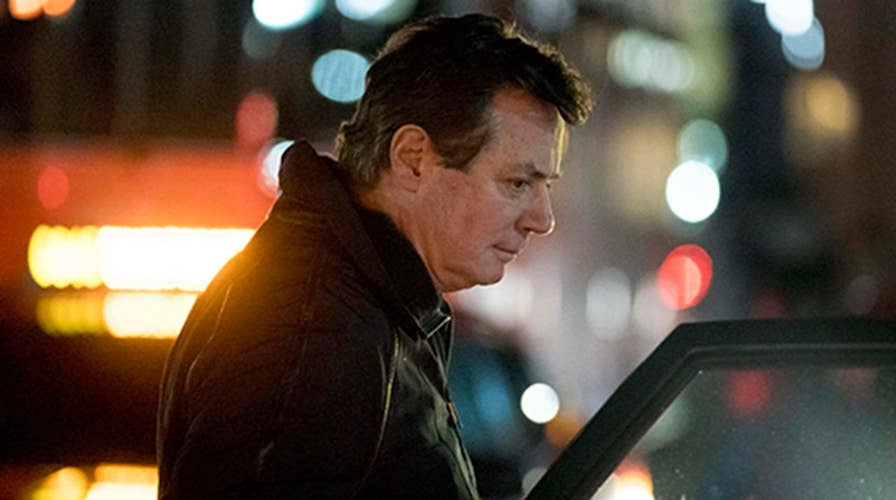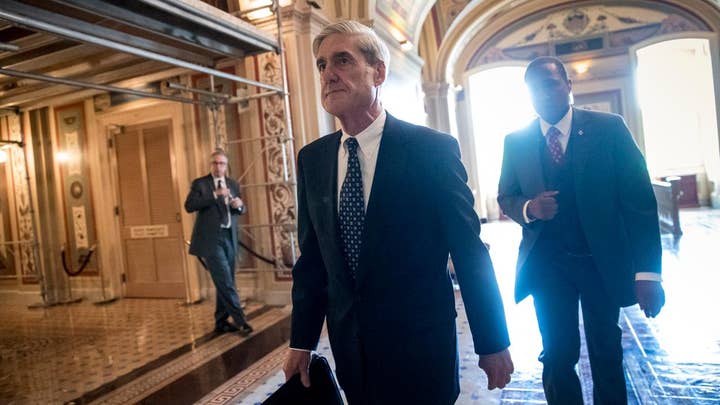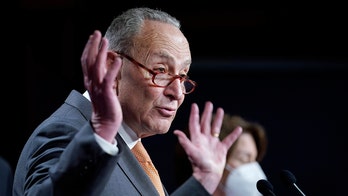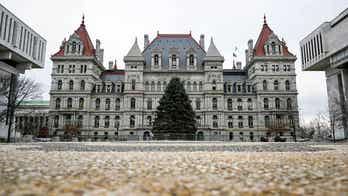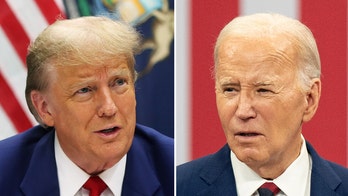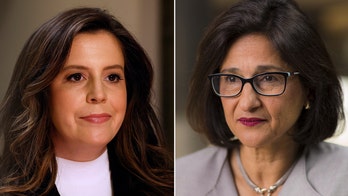Former Trump campaign manager Manafort jailed pending trail
Deseret News opinion editor Boyd Matheson weighs in on 'America's News HQ.'
Lawyers for ex-Trump campaign chairman Paul Manafort are raising concerns about a 2017 meeting between top law enforcement figures and Associated Press reporters, questioning whether “grand jury secrecy” was violated and revealing memos that say the reporters even offered investigators a “code” pertaining to their client’s storage facility.
The details emerged in a series of recent filings, including an effort by Manafort's attorneys to get his criminal trial moved from Northern Virginia, citing pretrial publicity.
“Mr. Manafort's legal issues and the attendant daily media coverage have become a theatre in the continuing controversy surrounding President Trump and his election," Manafort's lawyers wrote Judge T.S. Ellis, who is overseeing the bank and tax fraud case in Northern Virginia. A second prosecution, involving similar charges, is underway in Washington, D.C.
Arguing for a trial in Roanoke, Va., Manafort's legal team said an “inside-the-beltway jury” would be biased against their client.
But Manafort’s defense also is seeking a hearing on the April 2017 meeting involving FBI and Justice Department officials and four AP reporters – after his team for months has argued that improper leaks to the media have put him at a disadvantage.
The recent filing contains two newly disclosed FBI memos documenting the April 2017 meeting. It included three FBI agents; a Justice Department trial attorney; an assistant U.S. attorney and Andrew Weissmann, then chief of the DOJ’s fraud division before he moved on to Special Counsel Robert Mueller’s Russia probe. The meeting also included four AP reporters: Chad Day, Jack Gillum, Ted Bridis and Eric Tucker.
"The meeting raises serious concerns about whether a violation of grand jury secrecy occurred,” Manafort’s lawyers wrote in the filing. "Now based on the FBI's own notes of the meeting, it is beyond question that a hearing is warranted."
While both FBI memos state the meeting was "off the record" and not for reporting, they suggest the AP did get some information.
“At the conclusion of the meeting, the AP reporters asked if we would be willing to tell them if they were [off base] or on the wrong [track] and they were advised that they appeared to have a good understanding of Manafort's business dealings,” FBI agent Karen A. Greenaway writes.
The following day, the AP reported an exclusive story titled, “Manafort firm received Ukraine ledger payout.” Two reporters at the meeting shared the byline with a third journalist.
The memo written by senior FBI agent Greenaway is seven pages long and provides the most detail about the meeting. Greenaway states that the April 2017 meeting was arranged by Weissmann and the "purpose of the meeting, as it was explained to SSA Greenaway, was to obtain documents from the AP reporters that were related to their investigative reports on Paul Manafort." There is no indication from the memo that the AP shared or allowed federal investigators to review their records.
However, the FBI memo describes how the reporters discussed details of their wide-ranging investigation into Manafort, telling officials "they had located a storage facility in Virginia that belonged to Manafort" – and offering "the code to the lock on the locker." Greenaway claims the reporters knew the locker unit number and address but declined to share that piece of information.
A second FBI agent penned a shorter memo about the meeting that differs on a key point. Agent Jeffery Pfeiffer says the reporters offered the "gate code" to access the storage unit.
The same agent recently testified that a tip from the AP may have been a critical development leading to the identification of Manafort's Virginia storage locker that was later searched. On the stand, Pfeiffer said he was not sure whether the tip may have come from the FBI's own investigation.
Fox News asked the AP if it accepted or disputed the FBI's account of the April 2017 meeting, and whether there was a connection to their Manafort report a day later. There was no immediate response from the AP, but last month in connection with a similar inquiry, a spokesperson said the reporters were doing their job.
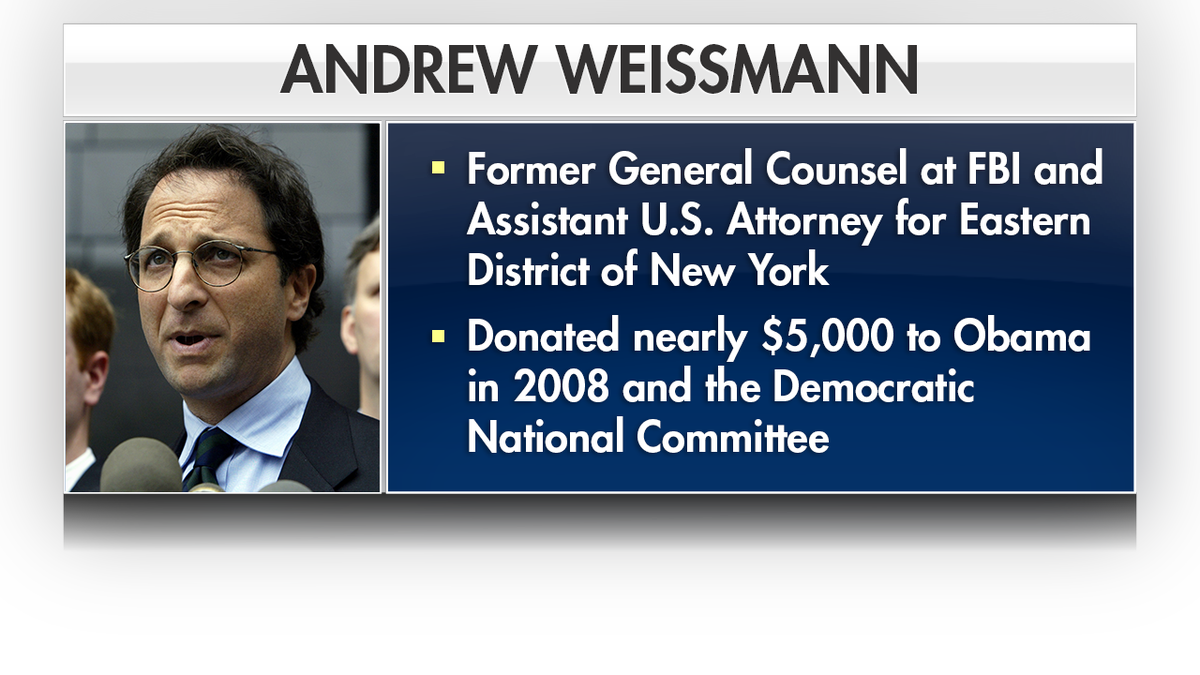
“Associated Press journalists met with representatives from the Department of Justice in an effort to get information on stories they were reporting, as reporters do,” an AP spokesperson explained. “During the course of the meeting, they asked DOJ representatives about a storage locker belonging to Paul Manafort, without sharing its name or location."
Meanwhile, on the reporters’ questions about Manafort’s business activities involving Cyprus, one FBI memo states, "FBI/DOJ did not respond, but Andrew Weissmann suggested that they ask the Cypriots if they had provided everything to which they had access or if they only provided what they were legally required to provide."
The reporters also offered to the FBI and DOJ officials that [Russian oligarch Oleg] “Deripaska's current lawyer is threatening to sue them over their article about his relationship with Manafort." The FBI agent notes that, just prior to the April meeting, Deripaska took out a newspaper ad denouncing the AP reporting.
Manafort's lawyers first requested records about the 2017 meeting, including notes documenting the discussion, in January and February, telling Judge Ellis that the special counsel’s office produced the FBI memos only within the last two weeks:
"On January 23, 2018 and again on February 21, 2018 … Mr. Manafort’s defense team sent letters to the Office of Special Counsel (‘OSC’) requesting information regarding contacts between the government, including members of the prosecution team or the OSC, and the media. No information was provided with respect to Mr. Manafort’s request until last Friday, in anticipation of this Court’s hearing about potential governments leaks to the media. The OSC produced two FBI electronic communications regarding an April 11, 2017, meeting between prosecutors from the Department of Justice, supervisory special agents, special agents from the FBI International Corruption Unit, and reporters for the Associated Press.”
A spokesman for the special counsel’s office declined to comment about the alleged delay, and whether Weissmann is now considered a potential witness. At the most recent Manafort hearing in Virginia, Weissmann was not seated at the prosecution table.
